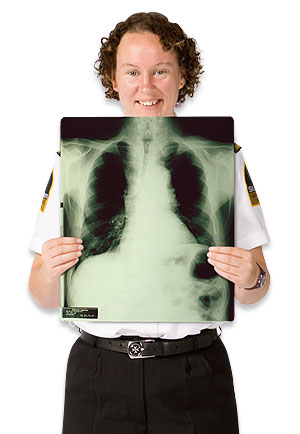
 Bridget Gentle
Bridget Gentle
Graduate
Anatomy and Structural Biology
Bridget Gentle has dressed wounds using only the light of the cell phone. She has calmed people angry and insane with grief. Every day might involve falls, car crashes, chest pain, mental health emergencies and more.
But it's exactly this diversity of experience – and the opportunity to make a difference at the moment it really counts – that Bridget says makes her career as an ambulance officer so rewarding.
Bridget originally planned to join the army, and briefly embarked on nursing training. But it was working as a volunteer for St John ambulance while studying at Otago that Bridget discovered her calling – a job that combines her interest in anatomy with her ability to keep a cool head under pressure.
You don't need a degree to become an ambulance officer – there are several ways to train for the role – but it helps. Indeed, Bridget says her time at Otago benefited her in more ways than she might have imagined.
“Being an ambulance officer involves much more than first-aid skills. My employers wanted to see that I had maturity and life experience. I needed to be able to show teamwork, commitment and professionalism. And the ability to communicate effectively – to patients, their families and my colleagues – is crucial. These were all qualities I could demonstrate through my studies.”
Furthermore, she says she uses the knowledge she gained every day. “It's extremely helpful to know what's happening physiologically when someone's blood pressure is dropping. Or why we give oxygen when we do. Knowing the underlying theory of how the body operates helps you make good decisions.”
At the sharp end of medical emergencies, says Bridget, this matters. “It's never a lovely, clean clinical environment. We might be at the side of the road, dealing with people who are scared, in shock or pain. It's essential that you work as a team and have confidence in the decisions you're making.”